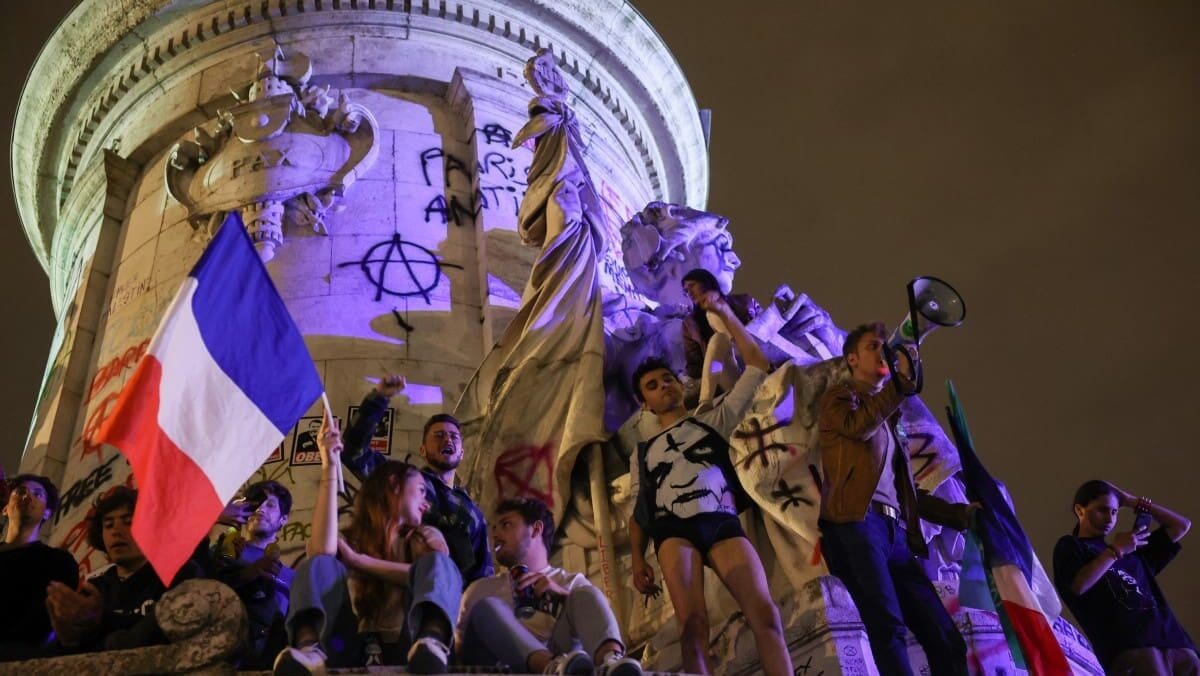
Photo: EMMANUEL DUNAND / AFP
Against all expectations, the 2nd round of the French parliamentary elections brought the Nouveau Front Populaire (NFP) coalition of the Left and far left to the top of the poll. President Macron’s camp and its allies came second, while the Rassemblement National (RN), despite emerging as favourites from the 1st round, finished third. An ungovernable France is taking shape for the next few weeks—with none of the three blocs able to form a sufficient majority to govern.
In the first round of legislative elections on June 30th, the RN came out on top with a score of over 30%. But the ‘republican front’ was reconstituted with renewed vigour to prevent the party of Jordan Bardella and Marine Le Pen from reaching the gates of power.
The campaign between the two rounds was marked by hysterical communication on the part of the media and candidates from the centre and the Left about a possible ‘fascist threat’ to France. Numerous local withdrawal agreements between the NFP coalition and Ensemble, the presidential alliance, made it possible to organise joint candidacies designed to defeat the RN in over 200 constituencies.
The latest results on the evening of July 7th give the following breakdown (according to figures from the Ministry of the Interior, the numbers are in the process of being refined):
Although the RN ended up with a result well below the estimates given by the polling institutes at the beginning of the week—before the second-round alliances were concluded—it nevertheless significantly increased its number of MPs and remains the leading party in terms of the number of representatives. Against all the odds, the presidential camp, despite Emmanuel Macron’s overwhelming unpopularity, is holding out and positioning itself as the arbiter of the future majority.
The next few weeks are going to be marked by a great deal of uncertainty and intense negotiations over who will be France’s next prime minister. Jean-Luc Mélenchon, the leader of the La France Insoumise party, the leading force in the left-wing NFP coalition, has already made it clear that he wants the coalition’s programme to be implemented in full. However, his divisive personality does not predispose him well to becoming head of government: Emmanuel Macron will probably look for a more consensual figure, likely to win the support of the Left and centre.
Current Prime Minister Gabriel Attal is due to hand in his resignation to the President of the Republic on Monday, July 8th, who is free to accept it or not. Given the current uncertainties, he could be kept in office until the political horizon becomes clearer.
RN president Jordan Bardella denounced the alliance of dishonour between the centre and the Left that had enabled the NFP to come out on top in the vote. Marine Le Pen played down the RN’s disappointing result compared with expectations, stressing that the victory was only delayed.
Jordan Bardella during the evening also confirmed that, at the European level, his party would be joining the Patriots for Europe formation launched by Viktor Orbán.
